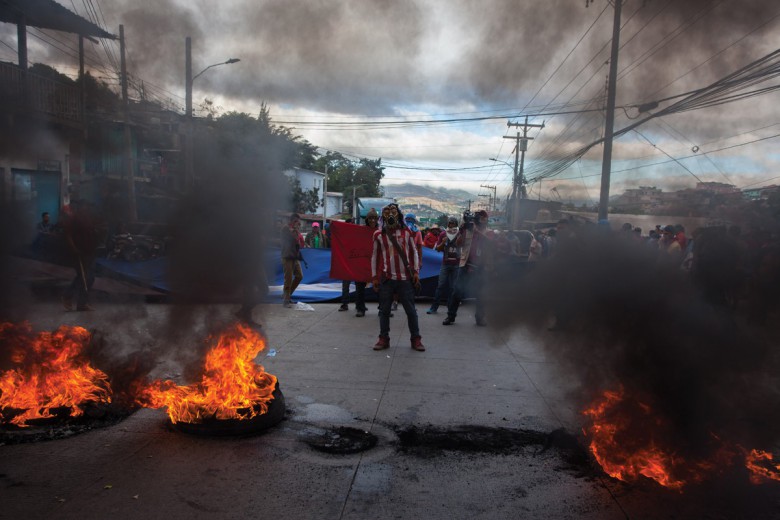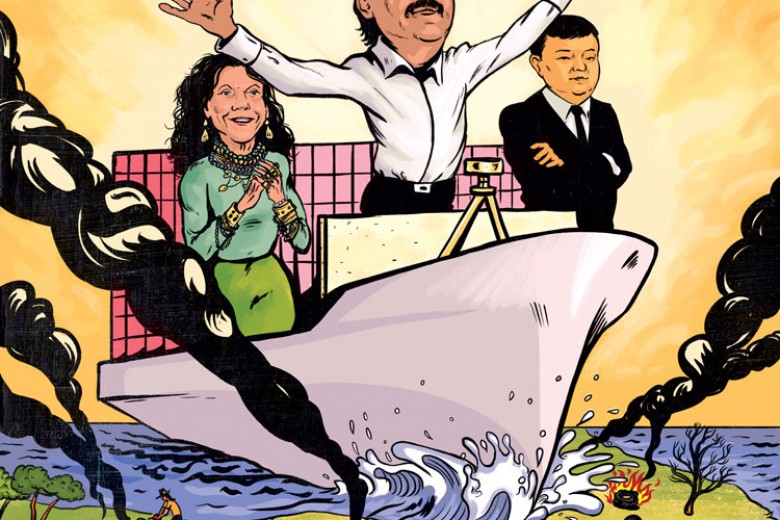“Everybody likes Canada. Everybody respects Canada. . . . You’ve avoided a stigma that’s attached to the rest of the West . . . that the other parts of the world regard with such suspicion.”
Bono, explaining in 2003 why
“the world needs more Canada”
The Harper Government’s performance at the UN climate change conference in Bali in December certainly didn’t make this country any friends. Alongside Japan and the U.S., our official delegation—which, unprecedentedly, did not include NGOs or opposition politicians—did its utmost to scuttle the world’s last, best hope for averting extreme climate change, and only bowed to global consensus on a watered-down agreement in the face of concerted domestic and international pressure.
Watching it all unfold, I couldn’t help thinking of Bono’s 2003 declaration that “the world needs more [of Paul Martin’s] Canada.” The statement echoes hollow indeed now that the veneer of liberalism has been washed from Canada’s international image. I can think of plenty of things the world needs more of, but Canada’s tar sands, clearcuts and government representatives intent on sabotaging international agreements for the sake of greed sure aren’t among them.
One useful consequence of the fallout from Bali is that it at least serves to clarify Canada’s place in the emerging world order. If we can see that for what it is, then we have a hope of doing something about it. Canada is now the primary fuel source of the United States, thanks to the monumentally destructive tar sands of Northern Alberta. We are, in Stephen Harper’s words, an “energy superpower,” and we’re behaving accordingly, making no bones about aggressively defending our wealth and privilege in a time of growing global inequality and volatility. This shift goes beyond Bali, beyond the Conservatives, and beyond Canada. Global capitalism, quite simply, demands economic growth at all costs, while global survival demands an end to economic growth. Those of us in the countries that are fueling that growth need to start applying the brakes, as hard as that may be.
This puts Canadian environmentalists in a difficult position. Opposing economic growth hardly makes for a viable political strategy, but somehow the case needs to be made for a new model that doesn’t require perpetual economic expansion, and the redistributive policies and incentives to make such a model possible need to be developed.
Fortunately, there are promising signs that the environmental movement may be up to the challenge. Canada’s youth delegation in Bali, most of whom funded their trip out of their own pockets, were stood up by the Canadian Environment Minister, John Baird, who was scheduled to meet with them to discuss Canada’s greenhouse gas plan. The youth were determined not to allow Baird to slough off their criticisms so easily; their redoubled efforts helped spark substantial media attention back at home, as well as an online petition that gathered over 80,000 signatures across Canada in a matter of a few days. This petition and the actions of people around the world were crucial in pushing Canada to sign on to the agreement in Bali, weakened as it was by that point. This kind of global activism, largely driven by grassroots movements in the Global South, can and must play a key role in 21st-century environmentalism.
To return to Bono’s words in the epigraph above, the “other parts of the world” certainly have good reason to view the West—Canada included—with “suspicion.” Recent history offers them a long list of grievances. The “stigma” Bono alludes to is properly called imperialism: the richest countries import the world’s wealth (in the form of timber, cheap labour, cheap electronics, etc.) and leave the waste behind. And as environmental problems grow more pronounced, this imperialism increasingly expresses itself in environmental terms: the West refuses to reduce its carbon emissions, while the Rest suffer the consequences.
Global problems demand global solutions. Canadian environmentalists, it is now clear, must also be anti-imperialists if we are to keep governments like ours from selling out the majority of the world’s people to protect the profits and privileges of a select few. We must look to popular movements the world over for direction and inspiration in this struggle.
This issue of Briarpatch has no overarching theme, though most of the articles are international in their focus. They embody, I hope, the sort of humility and curiosity about the rest of the world and its struggles that must guide our own actions in our own neighbourhoods.






